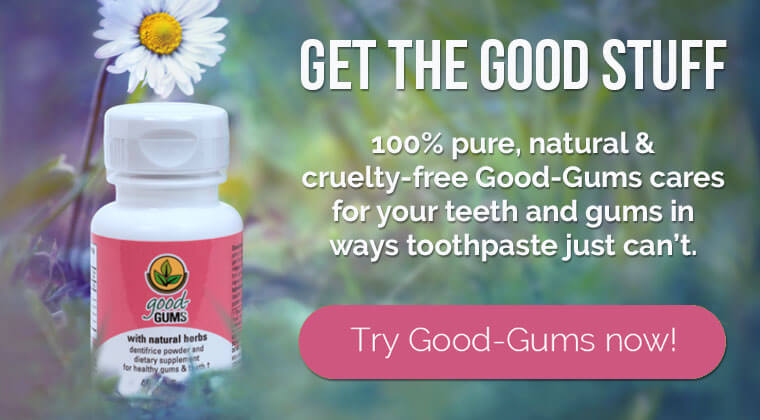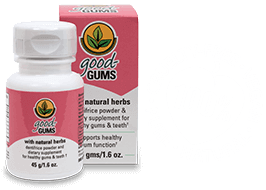Does Your Toothpaste Contain Artificial Sweeteners?

How is your toothpaste sweetened?
Sugar’s out for obvious reasons, so what makes your toothpaste so sweet?
Most conventional kinds of toothpaste contain artificial sweeteners to give them that appealing sweet taste people love so much, and while they may not cause direct harm to your teeth and gums, they are extremely harmful – not to mention dangerous – to your overall health and wellbeing.
So what artificial sweeteners should you look out for?
Aspartame
Aspartame is arguably the most common artificial sweetener used in toothpaste today and in our opinion the most harmful. The reason aspartame is used in most kinds of toothpaste is that it’s cheap to use, low calorie, and 200 times sweeter than sugar so a lot less of it is needed to achieve the same level of sweetness.
However, when aspartame is ingested, it metabolizes in the body to form methanol: a poisonous wood alcohol. The methanol is then quickly absorbed and converted by the body into formaldehyde – an extremely dangerous compound that causes severe damage to your tissues.
Aspartame side effects :
Possible side effects include:
- Migraines
- Heart palpitations
- Nausea
- Gastrointestinal issues
- Vertigo
- Fever
- Depression
- Insomnia
- Memory loss
- Joint pain
- Brain tumors
Research also suggests that aspartame consumption may lead to illnesses such as Alzheimer’s, epilepsy, lymphoma, Parkinson’s, diabetes, multiple sclerosis, and fibromyalgia.
Also read: Why Diet Soda Is Just As Bad For Your Teeth (And Waistline) As Regular Soda
Saccharin
Another popular artificial sweetener is petroleum-based saccharin: a lab-produced “sugar” made from crude oil. Saccharin is most commonly used to sweeten low-calorie diet foods, soft drinks, jellies, cookies, and, of course, toothpaste. Even though saccharin has time and time again been linked to cancer in clinical studies since the 1970s, it still continues to be used as a common additive to food and hygiene products. Studies show that saccharin may disrupt the balance of gut bacteria and increase the risk of diabetes.
Sorbitol
Sorbitol is classified as a sugar alcohol, which, even though the name suggests, contains neither sugar nor alcohol. Sorbitol is present in relatively small amounts in certain fruits, particularly apples and peaches. However, the sorbitol in commercial food products is almost always made from corn syrup.
Sorbitol is not as sweet as table sugar so it’s often used in combination with another sweetener in toothpaste. The bacteria commonly associated with tooth decay, S. Mutans, can use sorbitol for energy, so it’s not considered a non-nutritive sweetener like most sugar alcohols. Although it has little effect on blood sugar levels, it is known to have laxative effects and cause diarrhea in children. Sorbitol has no proven benefit for tooth and gum health and is only used to improve the taste of toothpaste.
So what sweeteners are safe?
Xylitol
Xylitol is a sugar alcohol derived from natural sources such as fruits, vegetables, and birch trees. It is a non-nutritive sweetener, which means that it’s not used by the body for energy and has little or no impact on blood sugar levels.
Although Xylitol is about as sweet as regular table sugar, it is far from the same thing. It’s less calorically dense, does not impact blood sugar levels, and actually helps prevent the formation of dental caries because the bacteria associated with tooth decay cannot use xylitol for energy.
Xylitol can even help correct dry mouth as it increases saliva flow. Saliva flow, as we know, is also responsible for a whole load of additional tooth and gum health benefits.
Aside from causing some digestive symptoms when consumed in large amounts, xylitol is pretty well tolerated.

Throw out your toothpaste!
It’s not just artificial sweeteners that make toothpaste an undesirable option for oral health. Toothpaste is literally packed full of harmful ingredients that not only have a detrimental effect on your entire body (and emotional state!) but actually prevent your body from healing itself naturally. Yes, this means your toothpaste could actually be worsening your tooth and gum problems!
Take a look at our article, “Toxic Ingredients In Your Toothpaste“, to see which harmful ingredients you may be brushing your teeth with.
Remember, your gums need nutrition! As your gums are some of the most absorptive tissues in the body, it’s important that we feed them nutrient-rich vitamins, herbs, and minerals that not only aid teeth and gum health but can also benefit the health of your whole body.
This is why we created Good-Gums: an all-natural tooth and gum formula that works with your body’s natural healing ability and lets nature do the work!
Good-Gums is absolutely free from all chemicals, toxins, GMOs, fluoride, carrageenan, SLS, parabens, triclosan, artificial colors, flavors and sweeteners, propylene glycol, SLS, SLES, glycerin, and synthetics of any kind. It has absolutely no nasty stuff whatsoever. Good-Gums is also 100 % cruelty-free and vegan and is completely safe to ingest.
Every part of your body is craving products and foods that are as close to nature’s source as possible.
So throw away your toothpaste and switch to using our all-natural powder.
Your body and mouth will thank you.
Find out more about how we make our all-natural tooth and gum formula here.
Try Good-Gums all-natural powder now and see for yourself!

Subscribe To Our Newsletter
Be the first to receive all our news, offers and natural oral health tips and articles.


